- Home
- Piers Anthony
Service Goat Page 7
Service Goat Read online
Page 7
Ben nodded. “Because you did not have a need-to-know, so your interest was turned off by the goat. But I do have that need. There are subsidiary data bases that can be opened.”
“Can we do it, Nanny?” Callie asked.
The goat considered, and Callie transcribed her thoughts for the others. /Not immediately. The supplementary banks are locked against illicit intrusion. Only a governing herd can open them.
“We're not a herd!” Venus protested.
“Oh, but we are,” Ben said. “Hitherto Nanny has related mainly to her own kind, which forms herds. Now she is relating to the human kind, whose herds are called tribes, states, or nations. But I think for this purpose it means the eight of us who have joined her in temporary sapience. Yes?” He looked at the goat.
Nanny considered. /That is the present meaning, she agreed.
Callie relayed that.
“And there is surely sound reason for such caution,” Ben said. “This is no innocent weekend frolic Nanny is on; it is the initial contact between worlds. Carelessness could be deadly.” He smiled grimly. “As I must consider for my next report to my anonymous employer. We could all be herded off to a nameless detention camp while a faceless government bureaucracy ponders how to extract information from each of us alone, torture not necessarily excluded. I am now in serious doubt what kind of report to make, or whether to make it at all.”
“It is a dilemma,” Linda agreed.
“But I do have to make some kind of report, lest they catch on that something more is going on, and strike in a manner we don't like. The conspiracy of silence won't work here, because they have never touched the goat, and I think we need to see that they never do. I believe that Nanny, on some level, suspected this, and that is a reason she wanted to induct me into the group.”
“Yes,” Callie said, surprised. “She knew that not everyone is friendly and well meaning, the way we local folk are, and that Ben's employer could represent the Dark Side.”
“Keep your friends close, and your enemies closer,” Ben said.
“But your employer will demand an answer,” Venus said. “And you owe him one; you've taken his money.”
“That was before I changed sides.”
“You may not have changed sides,” the doctor said. “You may simply have discovered your true feeling.”
“But that's not enough. My employer most likely lacks that feeling. So I'm torn.”
The others nodded. “Maybe that private data bank is what we need to resolve this dilemma,” the doctor said. “Especially if it clarifies the alien mission. Then we'll have a better notion how to proceed.”
“We'll assemble the human herd,” Ben said. “Who should do it?”
“I will,” Callie said. “I am the one in closest contact with all of you.”
“Let's try for a meeting here this weekend,” the doctor said. “Each of the others coming unofficially. I think they'll understand.”
“They will understand,” Callie agreed.
“At two in the afternoon Sunday,” Linda said. “When others are watching ball games, tuning out the rest of the world.”
“Than shall we adjourn until then?” Ben asked, standing. “I think we know we can trust one another.”
“We do,” Linda said. She crossed over and kissed him on the cheek. There was nothing suggestive about it; it was the most natural thing.
The visitors departed. The family moved into the evening routine.
Callie hesitated. “Yes, dear?” Linda asked, picking up immediately on her concern.
“If—if things don't work out, and Nanny has to go—must I go too? To an orphanage or something? Without her I'm not so smart, and I'm blind.”
“You will stay here,” Linda said firmly. “We wouldn't kick you out, ever.”
“Th-thank you.” Callie was trying hard not to cry.
Linda enfolded her. Then they both cried.
Callie sought and talked to the others. The moment she touched Sam's hand he understood, because Nanny made understanding easy. “I'll be there.”
The teacher, Isabel Gentry, was easier yet. “I shall be interested to meet the others.”
“If—if you could send us to the Principal...”
The teacher laughed and wrote out a slip.
Applebaum was surprised. “You're not one to make trouble, Callie. I can't think why Isabel would send you here.” Then she touched his hand. “Oh, of course.”
They gathered at the Doctor's house on Sunday afternoon. Applebaum brought Miss Isabel from the school. There were introductions, as not everyone had met everyone. Callie noted that there was a certain frisson when Sam shook hands with Miss Isabel; they were of similar age and unattached, and now they had something powerfully in common. Then they settled down for the key event.
Doctor Stevenson summarized the herd mentality as understood by the goat. “We believe that this may help clarify the larger picture, and our place in it, as the data bank is opened. Then we will be in a better position to discuss it.”
“If you can all draw your chairs closer,” Callie said, “So you can link hands, and one of you link with me, then it will be a herd.”
They drew closer, linked hands, and Linda took Callie's hand.
Chapter 11: Gamble
Buck waited in the receiving pasture, mentally reviewing his case. He was too distracted by the importance of his mission to nibble on the excellent grass cultivated here. If he was able to persuade the Herd Matriarch who governed since the death of her mate, the Patriarch, that his case was viable, then it would become feasible. If not, then it would surely be a long hard hike with no guarantee of success. Because though it was the viability of their species itself at stake, the great majority of citizens chose to see no farther ahead than their next ration of grain. This interview was so vitally important!
The gate opened to admit a young doe. She was newly nubile, her token udder and neutral odor indicating that she had never been bred or birthed a kid. Hardly more than a kid herself. A messenger?
“Contact,” she bleated.
That meant that she was here on behalf of the matriarch. A messenger. Was that a good sign, or did it mean that the ruler of the herd declined to meet him?
He stepped forward and touched noses with the doe. Their minds merged, exchanging information at a rate impossible via vocalization. The physical contact enhanced both minds, making them far more intelligent than either was alone, though still below the level of sapience.
This was no lowly messenger! This was the matriarch's kid.
/My dam will meet you if you first persuade me of the merit of your case.
/My case is considerable. It would be more expedient to communicate with her directly.
/There are many who wish to do that. Her time and attention are valuable. She must be selective. I am a device for such selection.
/Translation, he thought wryly. /I must deal with you or I am out on my tail.
/And such a handsome tail it is, she thought with a current of mirth.
He shared the mirth. /Speak for yourself! I could sniff your tail for minutes without boredom.
They were flirting. Sometimes there was emotional attraction quite apart from the business afoot.
/Persuade me, and we may get to associate further.
That notion appealed. Emotional attraction was somewhat random and unpredictable, perhaps because it manifested independently of actual breeding. A couple that liked each other could indulge in the motions of breeding without actually doing it. Only when the doe was in heat did conception occur. This young doe was hinting that she would be interested in such incidental sex play.
But first there was his business to attend to. This would require contact for some time, because it included understandings achieved via sapience, though they were not at present in the sapient state.
/I can summon additional caprines to enhance our herd mentality, she offered.
It was a good offer. Each participating mind expan
ded when the linkage increased. Just as two were about twice as intelligent together as each one was apart, so three in effect tripled the intellect of the group, and four was generally enough to achieve sapience. Not only would the transmission of information quadruple, its substance would be more complete: quality as well as quantity. That was certainly more efficient.
Yet he demurred. /Two reasons to decline. First, the addition of two or more others would spread the data more widely than is appropriate at this stage. There must be suitable privacy until the matriarch signifies otherwise. She would want it this way, once she understands the essence of my case.
/Sensible. What other reason?
/This way I get to be with you, alone, several times as long. We might even get beyond tail sniffing during breaks in the communication. That notion appeals.
/It does. However, there must be truly persuasive substance, or a more cynical doe than I might suspect that your interest is other than substantive. Even a matriarch's kid must at times be selective.
That was fairly told: put up or shut up. She was young, but not naive. She said “even” a kid like her? She meant “especially.” Bucks galore must want to tryst shallowly with the matriarch's offspring.
/Then lie down beside me and receive my import.
Because standing and nose touching could become tedious for an extended mental dialogue.
She lay down on the sward, and he lay with her, facing away, so that their backs were firmly touching. Instead of further dialogue, he went into lecture mode, presenting the information as rapidly and broadly as was feasible at their present level of sub-sapience.
Buck was part of a class that studied astronomy: the inspection of distant stars and planets. It greatly impressed him, and he assimilated all that was available. Until he came to the kicker, the ugly fact that few folk knew or would care to know.
It had taken millennia to achieve group sentience, but it had been well worth the effort. By working together, mind and body, using their prehensile horns and adaptable hooves to shape tools and then machines that multiplied their effect, the caprines had developed technology that could greatly facilitate their comfort and even take them to the stars. But that some new knowledge brought its kicker: their own star, about which their planet orbited, was unstable. Every few hundred million years it went into an internal confusion that made it randomly flicker. It was entering such a period now. It could make a devastating flare at any time in the next ten thousand years, small as stellar events went, but significant at close range. In fact such a flare would incinerate Planet Capri, leaving only a burned out lifeless husk.
They were probably doomed to extinction.
/You are correct, the doe thought. /This is significant, and not wholly pleasant. Is there anything we can do about it?
/As it happened, there was, though there were constraints. They would move to another world orbiting a safer star if there was one. But there wasn't; all the local worlds—the ones within five light years—were unsuitable in various unappetizing ways. Even had there been an ideal world close by, space travel was prohibitively expensive in energy and matter. There would be no salvation for the masses, only for the elites: the leaders, and not all of them. The great majority would simply have to hope that the flare did not occur during their tenure. In fact, they were probably better off not knowing about the flare at all.
But some folk were not satisfied with that attitude. Buck was one: he wanted to devise a program that would save as many folk as possible, not restricted to the elites. He wanted to visually survey the local region of the galaxy to locate habitable planets farther out, as far as a thousand light years, and plant restorative enclaves on them. So that when the home planet perished, the civilization of Capri would not perish with it. The enclaves would be like seed banks, from which Capri could be restored, albeit in reduced circumstance. It was not ideal, but it seemed to be the best that could reasonably be achieved. Much better than nothing.
/Please, enough for the moment. I prefer to do some tail sniffing while assimilating this input.
Buck was glad to oblige. Unlike the females, males did not come into heat. Rather they were in perpetual heat, always ready and eager to have intimate relations with any females who might acquiesce, regardless of their heat. He liked Doe very well, and after indulging in sportive relations with her, he liked her even better.
In due course they settled back down for the rest of the data.
Buck campaigned for his project, stressing the need first to co-opt the biggest telescopes to do the survey, then to put all their resources into building the necessary spaceships. It would seriously reduce the creature comforts of all of them, but it was the only way to get the job done as swiftly as possible. But not only were most others not interested, in fact they were in denial about the danger. Some argued that it would be a phenomenal waste of resources, when the chances of any single spaceship establishing an enclave were only about one in ten, with most of the others perishing in space or on hostile planets. A foolish suicide mission that would impoverish the home planet. When he persisted in trying to agitate them, they turned on him with mayhem in mind. He had to flee the mob.
Yet some few were alert to the danger, and supported the project. Some telescopes were starting the survey and turning up prospects for habitable worlds. The ships were being designed and materials gathered. IT COULD BE DONE. But more was needed, or the work would be incomplete.
/And this is why I have come to see your dam, Buck concluded. /Your herd is the largest on the planet. If it commits, we can complete the project.
/I am persuaded. We will go now to meet with my dam.
The kid was persuaded, but the matriarch was more cynical, even after receiving the full import. /You will need volunteers for an exceedingly risky mission. If you truly believe in this, why not go to space yourself?
That had not occurred to Buck, but it made sense. /I will board the first ship,
/I will go with him, Doe thought.
The matriarch was startled. /I did not mean you, kid. You are merely the messenger here. Your destiny is with the Herd, after I pass on.
But Doe was adamant. /I have come to know and love Buck, and his mission is worthy. The reasoning applies to me as much as to him. I prefer to risk death with him in a worthy endeavor, than accept an easy life here on Capri.
The matriarch could not argue with that. So it was that the matriarch came to support the gamble on space, making it viable, and Doe joined Buck in the crew of the first ship. This was, as a matter of principle, the one destined for the farthest of the likely planets, a thousand light years away. The indications were that its gravity was standard, its atmosphere was compatible, and it supported both plant and animal life. Even the local cycles were similar for days and years. The survey was vague at this distance, but showed what resembled a herd of goats grazing on greenery. Could their own kind be there? Was it possible that sapience existed here? The goats did not look sapient, but of course no separate goat was; it required touching groups to achieve that level. For routine chores like grazing, sapience was not only superfluous but a waste of focus. The realistic chances of sapience were small, but what an exciting prospect!
But the distance meant that no return contact was likely, even if a successful enclave was established. It would take three thousand years to reach the planet at a top speed after acceleration of half light velocity, and another thousand for the message to reach the home planet. The present society would be long gone by then. In fact the planet might have been scorched to oblivion by that distant time. But if there was an enclave, the species would survive. That was what counted.
So this was both the least likely prospect, because of the distance and time, and the most likely, because of the possible affinity of kind. A fitting challenge for the leader of the salvation movement.
The rest of the crew consisted of three other does, of as diverse genetics as was available. Because while one buck could sire any number of kids
, one doe was limited to one, two, or three at a time. Each doe's offspring needed to be somewhat different from the others, to reduce the impact of inbreeding. A viable herd could be generated several times as rapidly starting with does. Doe would have to share Buck, which she didn't mind doing for the sake of the herd.
The journey itself was the least arduous thing about the mission. They all went into stasis, so as to survive the rigors of acceleration and the passage of thousands of years, while the machines governed the ship. This also saved food, and prevented them from aging. The machines would wake them when the appropriate time came. If there were a malfunction along the way, they would never know it.
Each stepped into his or her stasis unit. And out again. Doe looked at her emerging companions. Had the units failed to operate? No, the vision screen showed a completely different planet, and the chronometer indicated the passage of almost three thousand years. They had arrived, intact and operational.
Now they oriented on the prospect world. All its promise was not only realized, but expanded. There was life here, and there were goats. There were also apes, that crowded into monstrous cities. What was their purpose? Maybe as workers for the goats. They would send a lifeship to a goat area, avoiding the apes, and try to establish contact. This was a dangerous sub-mission, but essential to the larger effort. No enclave could be established blindly.
One person would go first to survey the geography and collect the necessary background data. One of the females, as the lone male could not be risked. That one would have a data machine to artificially enhance her mind to near sapience. The others would return to stasis for six months while that one prepared the way. Then that one would return to the ship, deliver her data, and they would together decide their proper course.
But who would take that formidable risk? /I will, Doe thought.
Buck wanted to protest, as she was the one he loved, but he could not in conscience do so. He had to play fair. But he did give her one thing: a capsule memory of the mission and their personal relationship, which she could invoke at need or preference. Meanwhile she would proceed without that distraction, focusing exclusively on the spot data mission.

 Serial
Serial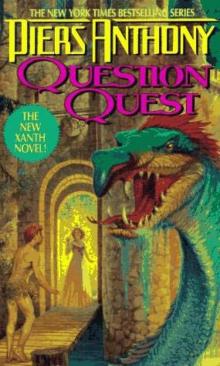 Question Quest
Question Quest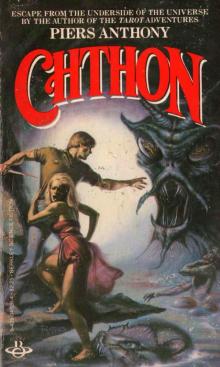 Chthon
Chthon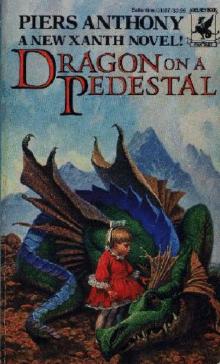 Dragon on a Pedestal
Dragon on a Pedestal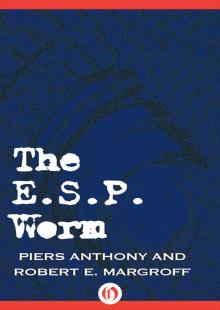 E. S. P. Worm
E. S. P. Worm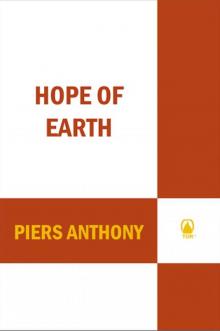 Hope of Earth
Hope of Earth The Series Boxed Set
The Series Boxed Set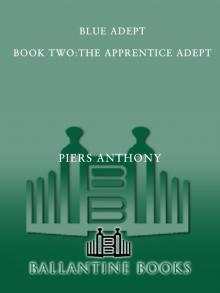 Blue Adept
Blue Adept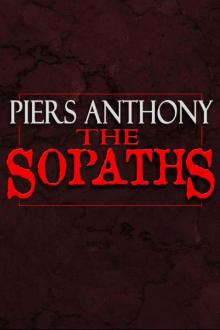 The Sopaths
The Sopaths Beetle Juice
Beetle Juice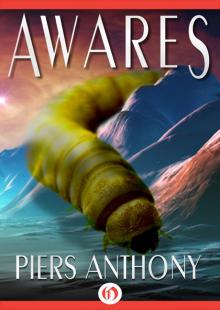 Awares
Awares Golem in the Gears
Golem in the Gears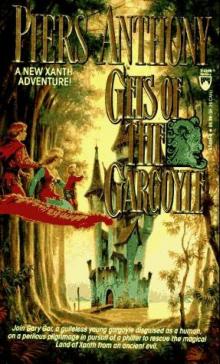 Geis of the Gargoyle
Geis of the Gargoyle Bamboo Bloodbath and Ninja's Revenge
Bamboo Bloodbath and Ninja's Revenge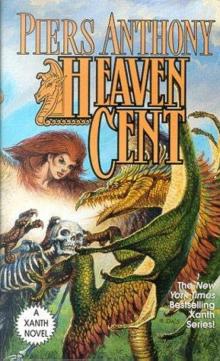 Heaven Cent
Heaven Cent Neq the Sword
Neq the Sword Pandora Park
Pandora Park Juxtaposition
Juxtaposition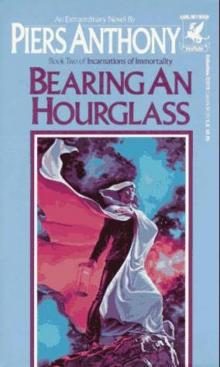 Bearing an Hourglass
Bearing an Hourglass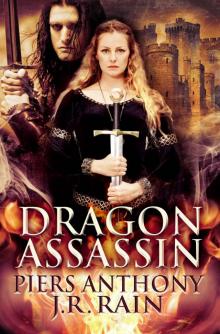 Dragon Assassin
Dragon Assassin Board Stiff
Board Stiff Virtual Mode
Virtual Mode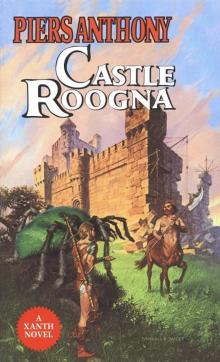 Castle Roogna
Castle Roogna Aliena Too
Aliena Too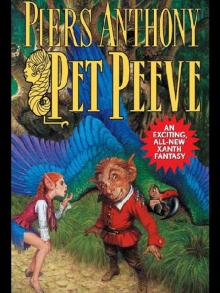 Pet Peeve
Pet Peeve The Metal Maiden Collection
The Metal Maiden Collection Volk
Volk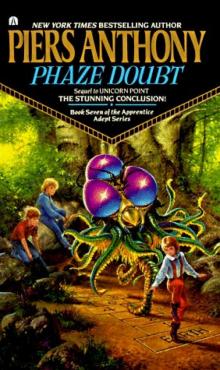 Phaze Doubt
Phaze Doubt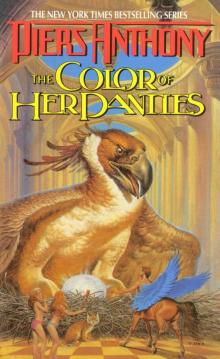 The Color of Her Panties
The Color of Her Panties Amazon Slaughter and Curse of the Ninja Piers Anthony
Amazon Slaughter and Curse of the Ninja Piers Anthony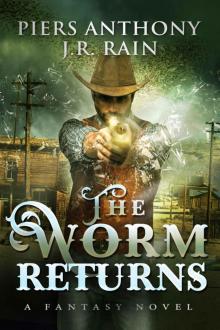 The Worm Returns
The Worm Returns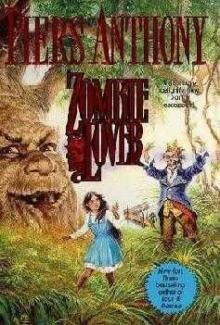 Zombie Lover
Zombie Lover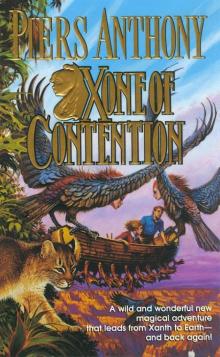 Xone of Contention
Xone of Contention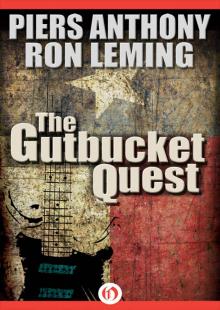 The Gutbucket Quest
The Gutbucket Quest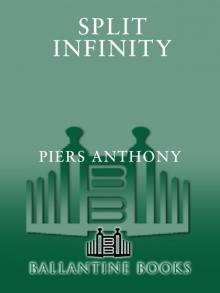 Split Infinity
Split Infinity Dream a Little Dream: A Tale of Myth and Moonshine
Dream a Little Dream: A Tale of Myth and Moonshine Balook
Balook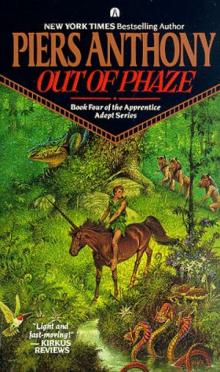 Out of Phaze
Out of Phaze The Secret of Spring
The Secret of Spring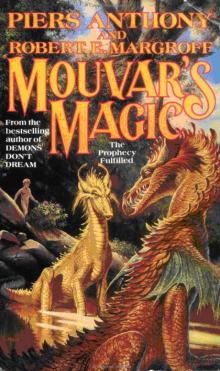 Mouvar's Magic
Mouvar's Magic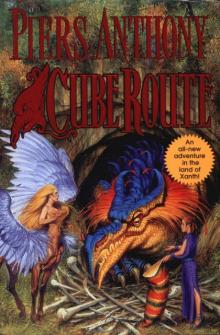 Cube Route
Cube Route Mercenary
Mercenary Total Recall
Total Recall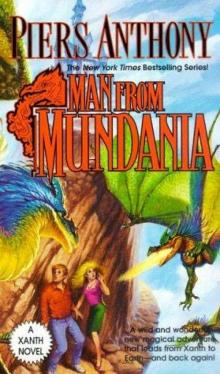 Man From Mundania
Man From Mundania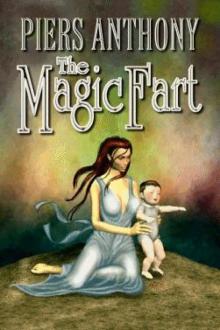 The Magic Fart
The Magic Fart Letters to Jenny
Letters to Jenny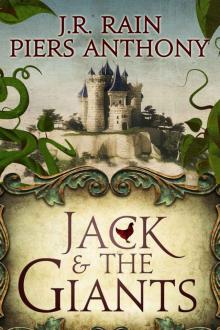 Jack and the Giants
Jack and the Giants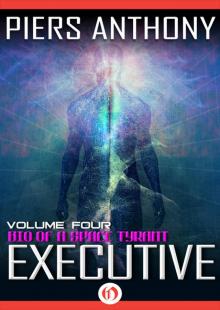 Executive
Executive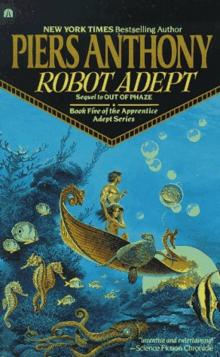 Robot Adept
Robot Adept On A Pale Horse
On A Pale Horse Vale of the Vole
Vale of the Vole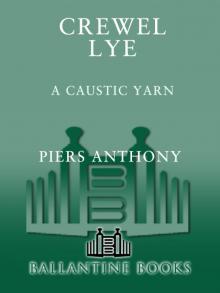 Crewel Lye
Crewel Lye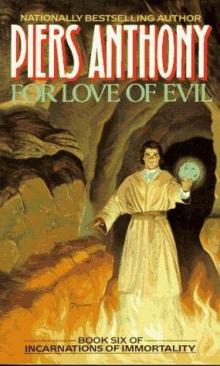 For Love of Evil
For Love of Evil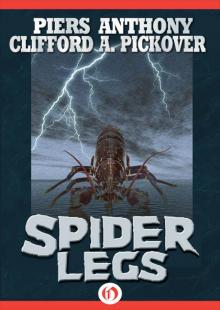 Spider Legs
Spider Legs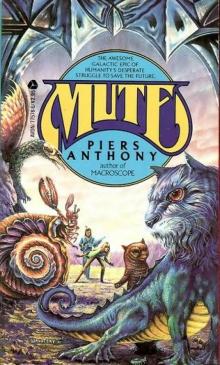 Mute
Mute Being a Green Mother
Being a Green Mother Hair Suite
Hair Suite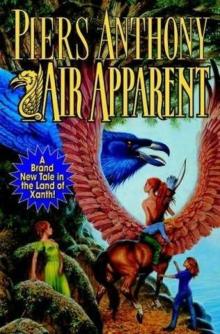 Air Apparent
Air Apparent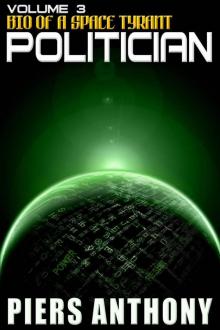 Politician
Politician Aliena
Aliena Phthor
Phthor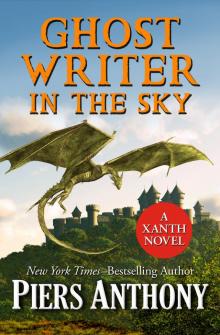 Ghost Writer in the Sky
Ghost Writer in the Sky Pornucopia
Pornucopia Eroma
Eroma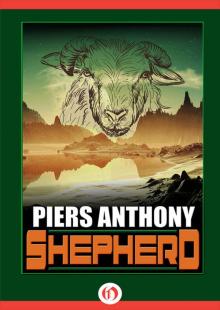 Shepherd
Shepherd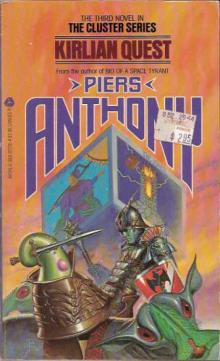 Kirlian Quest
Kirlian Quest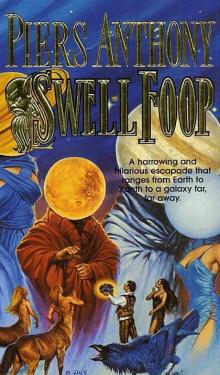 Swell Foop
Swell Foop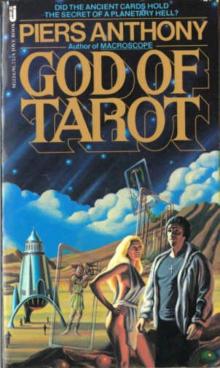 God of Tarot
God of Tarot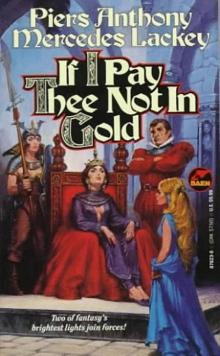 If I Pay Thee Not in Gold
If I Pay Thee Not in Gold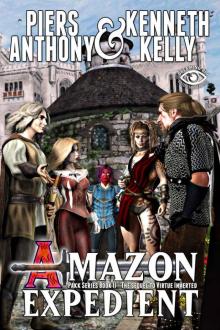 Amazon Expedient
Amazon Expedient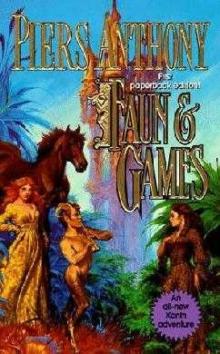 Faun & Games
Faun & Games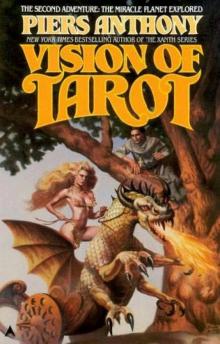 Vision of Tarot
Vision of Tarot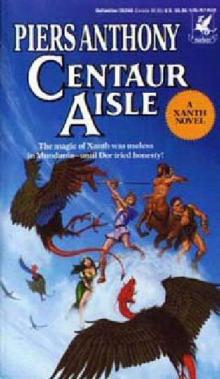 Centaur Aisle
Centaur Aisle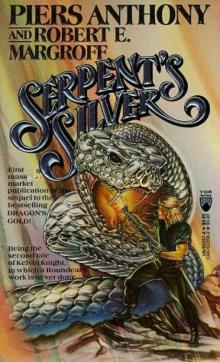 Serpent's Silver
Serpent's Silver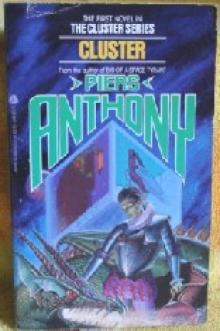 Cluster
Cluster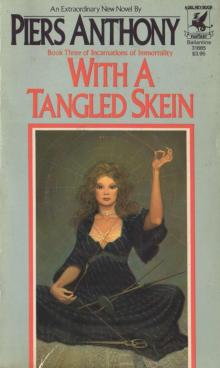 With a Tangled Skein
With a Tangled Skein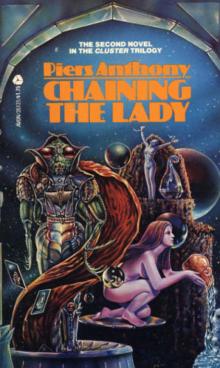 Chaining the Lady
Chaining the Lady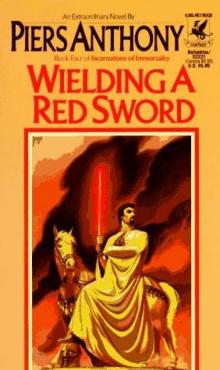 Wielding a Red Sword
Wielding a Red Sword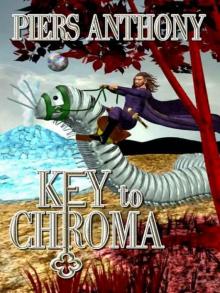 Key to Chroma
Key to Chroma WereWoman
WereWoman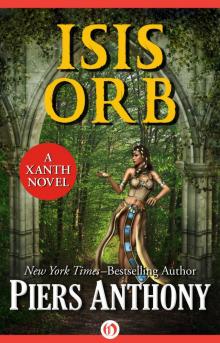 Isis Orb
Isis Orb Hair Peace
Hair Peace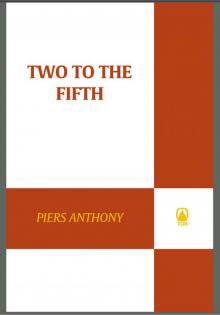 Two to the Fifth
Two to the Fifth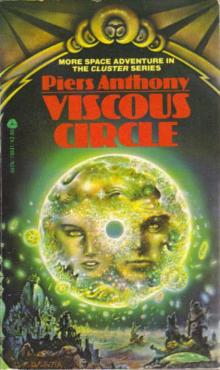 Viscous Circle
Viscous Circle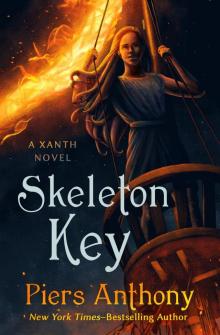 Skeleton Key
Skeleton Key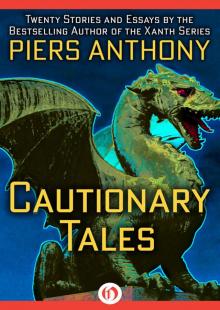 Cautionary Tales
Cautionary Tales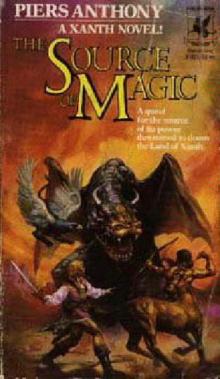 The Source of Magic
The Source of Magic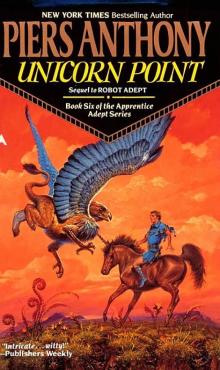 Unicorn Point
Unicorn Point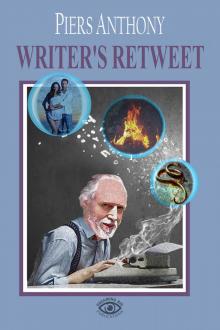 Writer's Retweet
Writer's Retweet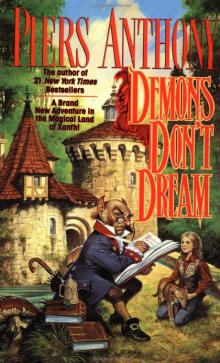 Demons Don't Dream
Demons Don't Dream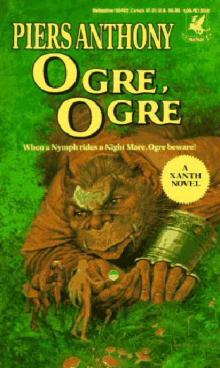 Ogre, Ogre
Ogre, Ogre The Iron Maiden
The Iron Maiden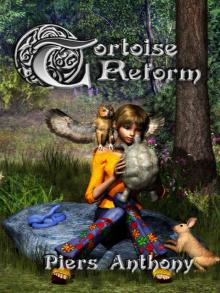 Tortoise Reform
Tortoise Reform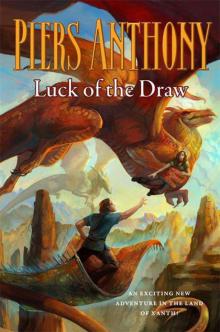 Luck of the Draw
Luck of the Draw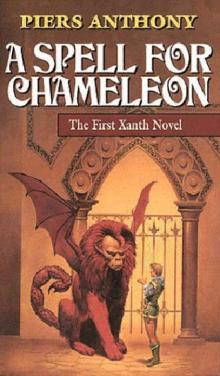 A Spell for Chameleon
A Spell for Chameleon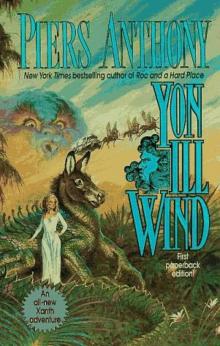 Yon Ill Wind
Yon Ill Wind Currant Events
Currant Events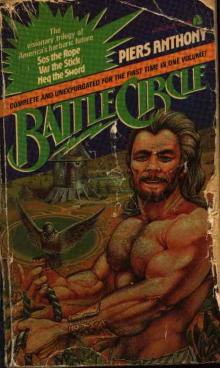 Var the Stick
Var the Stick And Eternity
And Eternity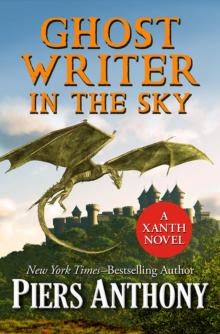 Kiai! & Mistress of Death
Kiai! & Mistress of Death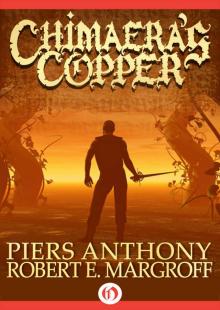 Chimaera's Copper
Chimaera's Copper Refugee
Refugee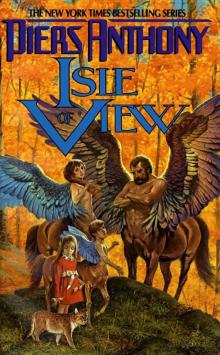 Isle of View
Isle of View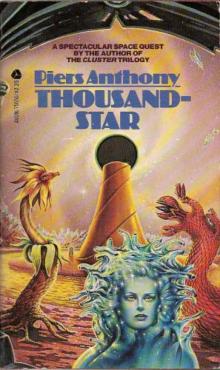 Thousandstar
Thousandstar Mer-Cycle
Mer-Cycle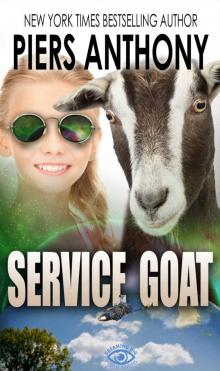 Service Goat
Service Goat Five Portraits
Five Portraits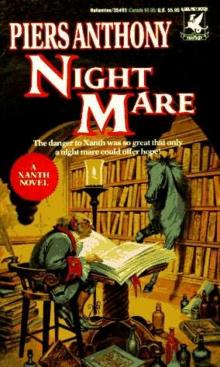 Night Mare
Night Mare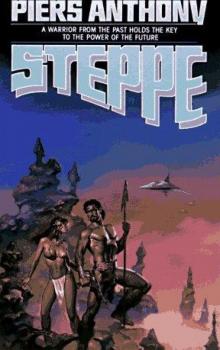 Steppe
Steppe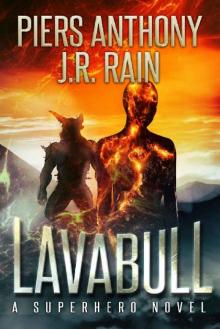 Lavabull
Lavabull Well-Tempered Clavicle
Well-Tempered Clavicle Aladdin Relighted
Aladdin Relighted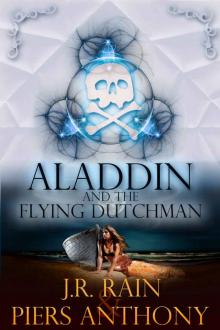 Aladdin and the Flying Dutchman
Aladdin and the Flying Dutchman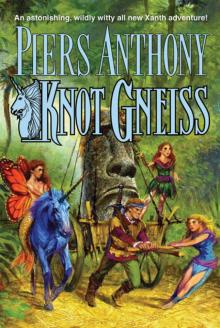 Knot Gneiss
Knot Gneiss Roc and a Hard Place
Roc and a Hard Place Aladdin Sins Bad
Aladdin Sins Bad Flytrap
Flytrap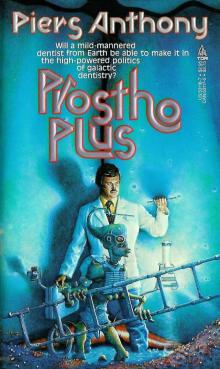 Prostho Plus
Prostho Plus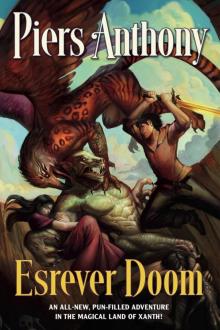 Esrever Doom
Esrever Doom Hair Power
Hair Power The Journey
The Journey Virtue Inverted
Virtue Inverted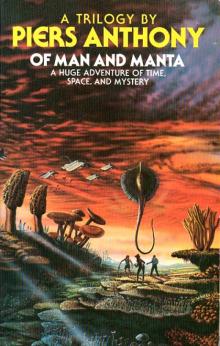 Of Man and Manta Omnibus
Of Man and Manta Omnibus Trail Mix: Amoeba
Trail Mix: Amoeba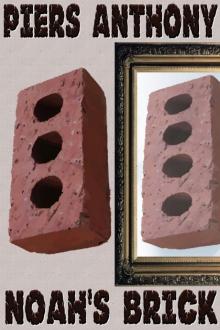 Noah's Brick
Noah's Brick Odd Exam
Odd Exam Magenta Salvation
Magenta Salvation Jest Right
Jest Right Fire Sail
Fire Sail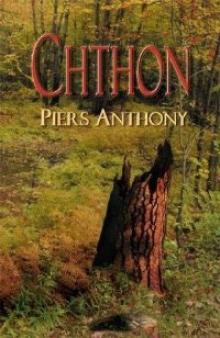 Chthon a-1
Chthon a-1 Amoeba
Amoeba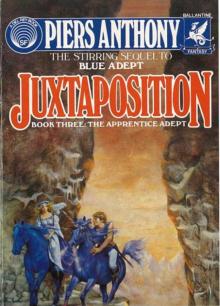 Juxtaposition aa-3
Juxtaposition aa-3 Pira
Pira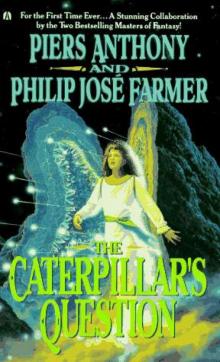 THE CATERPILLARS QUESTION
THE CATERPILLARS QUESTION What Fears Become: An Anthology from The Horror Zine
What Fears Become: An Anthology from The Horror Zine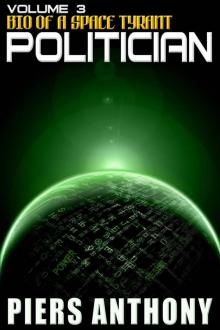 Bio of a Space Tyrant Vol. 3. Politician
Bio of a Space Tyrant Vol. 3. Politician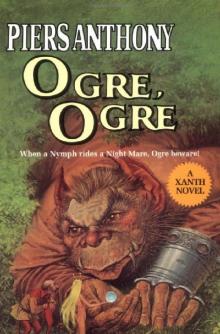 Ogre Ogre x-5
Ogre Ogre x-5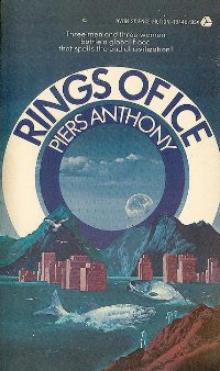 Rings of Ice
Rings of Ice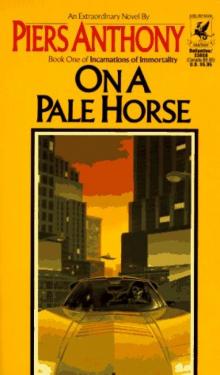 On a Pale Horse ioi-1
On a Pale Horse ioi-1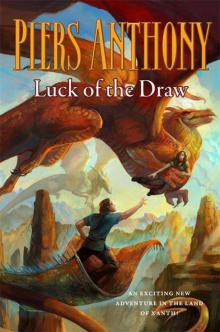 Luck of the Draw (Xanth)
Luck of the Draw (Xanth)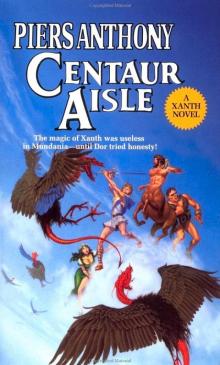 Centaur Aisle x-4
Centaur Aisle x-4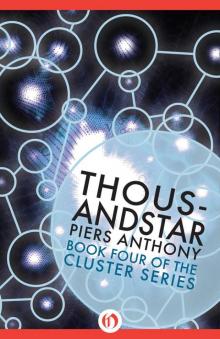 Thousandstar (#4 of the Cluster series)
Thousandstar (#4 of the Cluster series)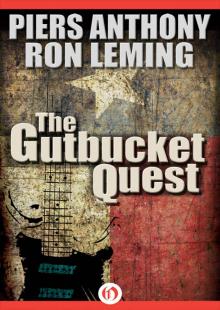 Gutbucket Quest
Gutbucket Quest Isle of Woman (Geodyssey)
Isle of Woman (Geodyssey)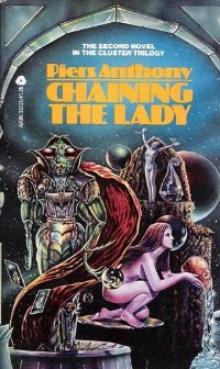 Chaining the Lady c-2
Chaining the Lady c-2 To Be a Woman
To Be a Woman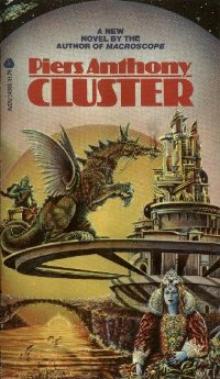 Cluster c-1
Cluster c-1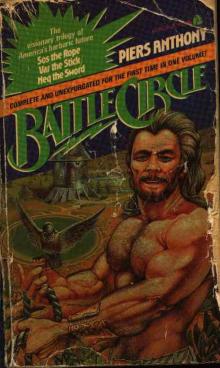 Battle Circle 2 - Var the Stick
Battle Circle 2 - Var the Stick Mercenary (Bio of a Space Tyrant Book 2)
Mercenary (Bio of a Space Tyrant Book 2)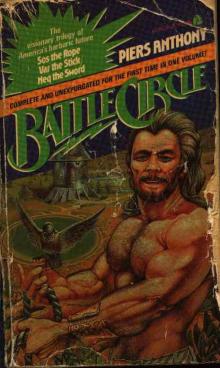 Battle Circle 1 - Sos the Rope
Battle Circle 1 - Sos the Rope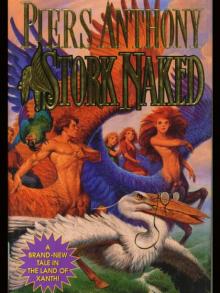 Xanth 30 - Stork Naked
Xanth 30 - Stork Naked Secret of Spring
Secret of Spring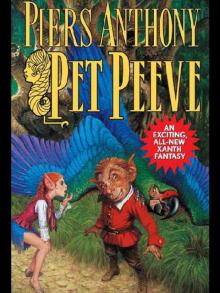 Xanth 29 - Pet Peeve
Xanth 29 - Pet Peeve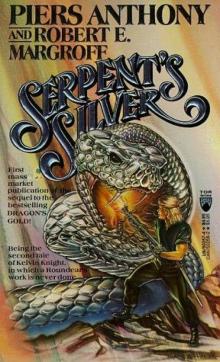 Serpents's Silver
Serpents's Silver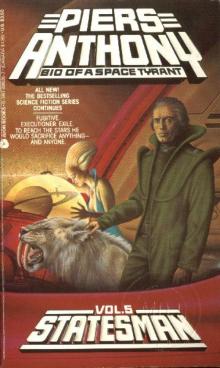 Statesman by Piers Anthony
Statesman by Piers Anthony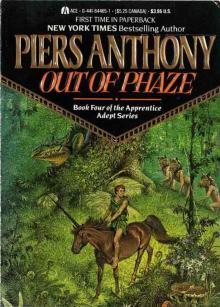 Out of Phaze aa-4
Out of Phaze aa-4 Amazon Slaughter & Curse of the Ninja
Amazon Slaughter & Curse of the Ninja